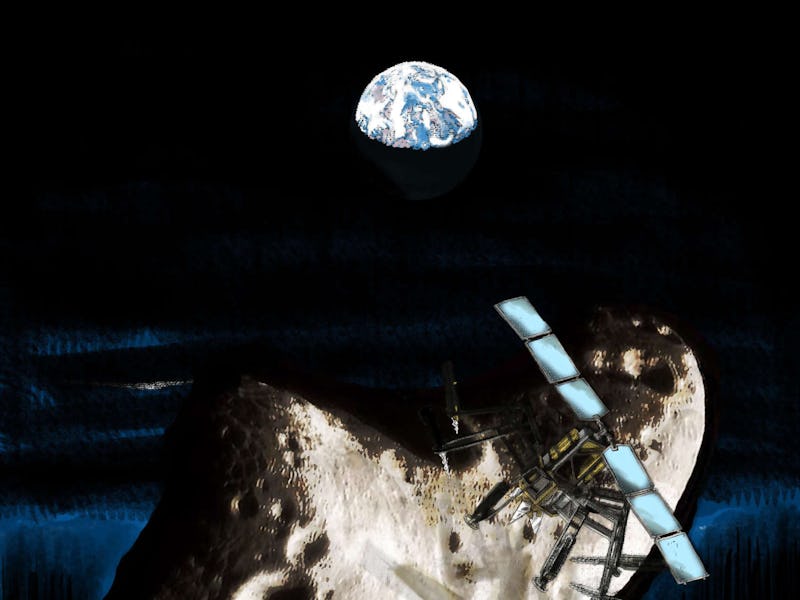The Small Country of Luxembourg Announces Big Plans for Asteroid Mining
One of Europe's smallest countries announces a new partnership with Deep Space Industries to commercialize space resources

Anyone who was doubting Luxembourg’s resolve to become the space mining capital of the world will need to rethink that opinion. It is the little engine that can. The country’s government announced today an extensive new partnership with asteroid mining company Deep Space Industries that will seek to advance the research and development of new technologies for use of mining operations in outer space.
In the short term, this means investing more money and resources toward Prospector-X, DSI’s initiative to develop an experimental spacecraft that can successfully test technological mechanisms that would go into mining asteroids.
DSI is pulling no punches by using the term “experimental.” The ultimate goal behind Prospector-X is to development viable spacecraft that can travel out to a near-Earth asteroid using a water-based propulsion system and nano-satellite navigation components, assess its geological properties for mining resources through a suite of high tech instruments, and send that data back to people on the ground so they can figure out what the next move is.
Back in February, Luxembourg announced it was establishing a legal framework that would make it possible for companies operating within or through the country to dig up and extract resources from other planets, moons, or asteroids — and retain ownership over those resources. The country is in the midst of a very serious push to become a global beacon for private companies interested in prospecting, harvesting, and commercializing space resources.
Luxembourg’s partnership with DSI is just the latest step toward strengthening the legitimacy of these plans. DSI itself has been very vocal about the country’s encouraging moves to incentivize space mining research and development.
“We have been impressed by Luxembourg’s tangible actions to lead the creation of an asteroid resource economy,” said Daniel Faber, CEO of DSI, in a news release. “The opportunity to partner with Luxembourg on Prospector-X allows a number of the key technologies for cost-effective deep space operations to be rapidly flight-tested in advance of more complex missions. We are also excited to be bringing that performance and reliability to the small satellite market.”
Of course, DSI isn’t cutting off ties with other international partners. It just won two NASA contracts to build and test space robots relevant to space mining.
Nevertheless, when it comes to commercial space mining, Luxembourg seems to be giving the United States a run for its money — despite Congress’ best efforts to put American companies in a good position. The European country is the size of Rhode Island, and yet it could very well play a pivotal role in helping us make space exploration a regular part of life.